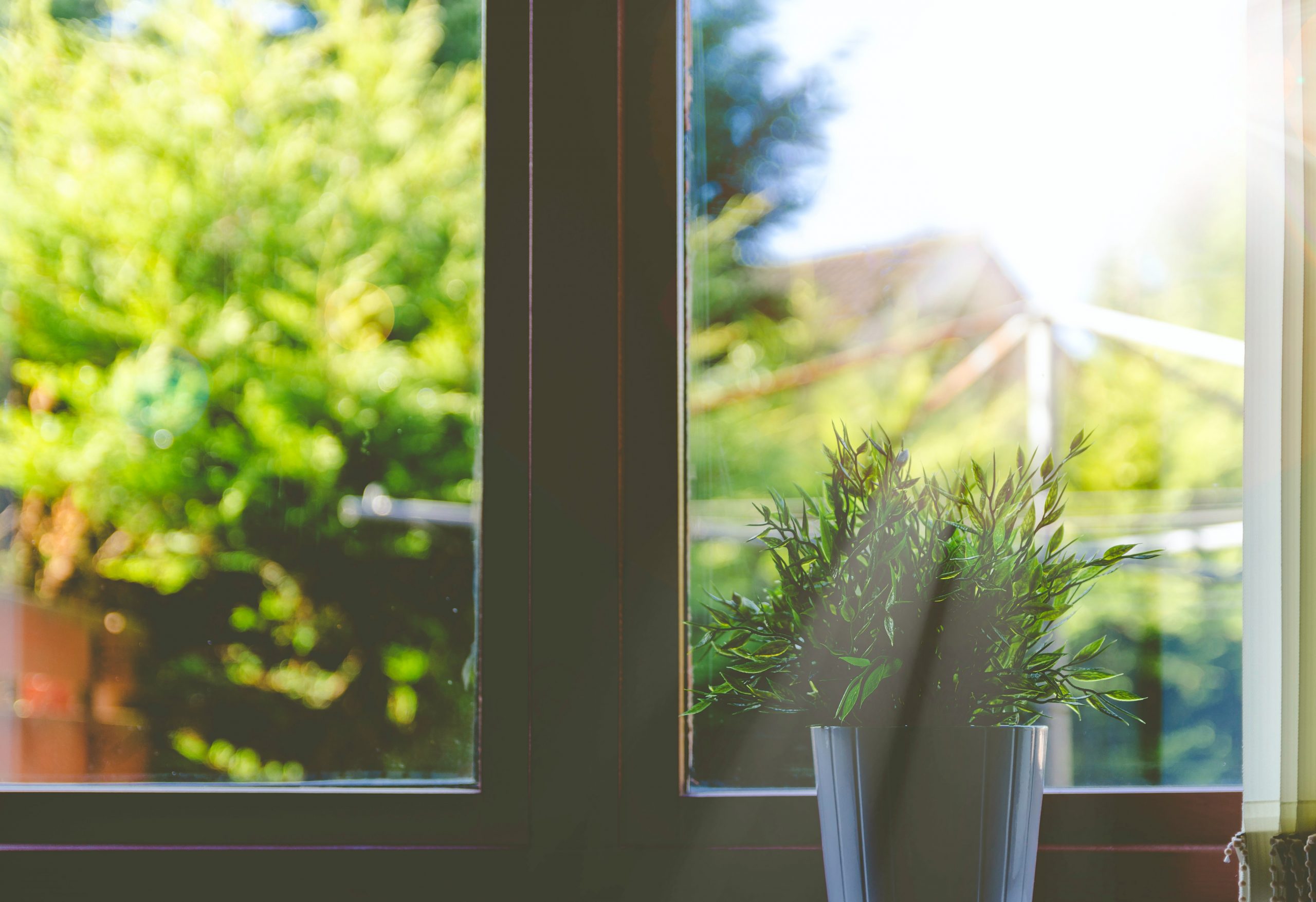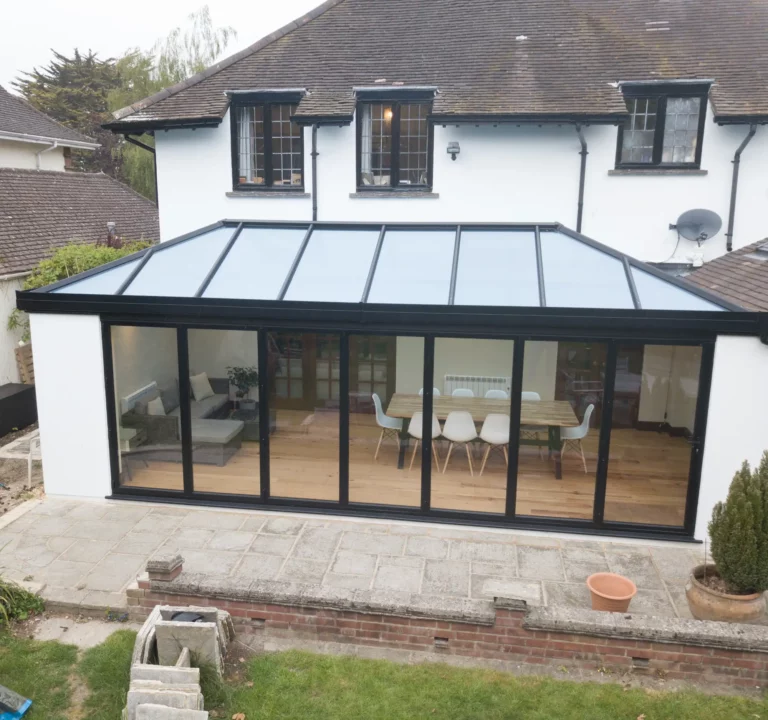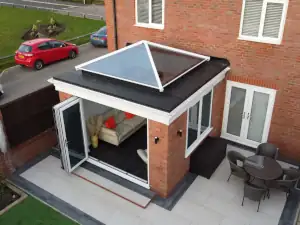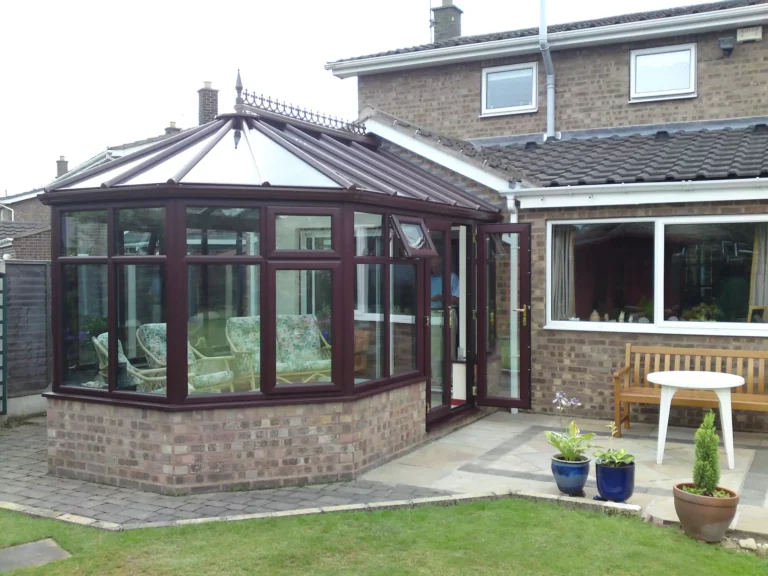The Science Behind Double Glazing: How It Works

Double glazing can save you money on your energy bills and reduce your carbon footprint.
It works using two panes of glass rather than a single pane, but there’s more to it than that.
How does double glazing work? Science!
Understanding double glazing science can help you choose the right windows for your home.
What Is Double Glazing?
Looking for windows, doors or conservatory fitters in Yorkshire?
Whether you have specific questions, require more details or want to make a general enquiry, don't hesitate to reach out to our team and we'll be happy to assist you.
A double-glazed window has two panes of glass, rather than a single pane. These panes are separated by a layer of inert gas, which acts as insulation, reducing noise, condensation, and heat transfer.
Double glazing improves a home’s energy efficiency, lowering energy costs and reducing the carbon footprint. There is a little more to it than that, and with double-glazed windows, science comes into play.
The components of a double-glazed window are:
- An insulated glass unit (IGU), which is simply the glass
- Air space, filled with inert gas like xenon, argon, or krypton
- A window frame, made of aluminium, wood, or uPVC
- A spacer bar and desiccant to keep the glass at the right width and reduce moisture
- Seals, to keep out moisture and keep your windows airtight
- In some cases, low-E coating
Each glass pane in a double-glazed window is 4 to 6 mm thick, and the gas layer between the panes measures 6 to 20 mm.
This means the thickness of the window averages about 24 mm.
That thickness, combined with the insulating properties of the gas, reduces heat transfer between the inside and outside of your home, as well as reducing noise pollution.
The Thermal Insulation Principle
Thermal insulation is the ability to keep heat inside while preventing the cold from coming inside.
Double-glazed windows operate on the thermal insulation principle, making a house more energy-efficient. This is because heat transfer can only occur between neighbouring objects.
The air gap and inert gasses within the double-glazed windows prevent heat from transferring from one pane to the next, and into or out of your home.
If you add low-E coating to your windows, it reflects heat to its source. This is either your warm home in the winter or the sun in the summer.
Sound Insulation
Similarly, sound waves are prevented from passing through a double-glazed window.
Just as the two panes and the gas cushion between them stop the transfer of heat, they also protect against noise pollution.
The windows absorb the sound vibrations, dampening the transmission of sound and reducing it by anywhere from 20 to 65 percent.
Energy Efficiency
In the winter, double glazing prevents cold air from entering, and warm air from escaping.
In the summer, double-glazed windows, especially those with UV protective coating, keep the sun’s rays out of your home and keep your cool air inside.
Because of the efficiency of these windows, your heating and cooling systems do not have to work as hard, and you save money on energy costs.
What’s more, because your climate control systems are working more effectively, they will use less energy and reduce your carbon footprint.
In fact, it’s been found that double-glazed windows reduce carbon dioxide emissions by up to 680kgs per year.
UV Protection
You know, of course, of the harm that UV radiation can do to your skin.
When the sun streams through your windows, though, do you realize what those harmful rays are doing to your furniture and home interior?
Double glazing acts as a sunscreen for your home, blocking up to 95 percent of UV radiation to prevent fading of your artwork, furniture, carpets, and curtains.
For the most effective UV protection, choose double-glazed windows with glass treated to deflect UV rays.
Condensation Control
Condensation on windows can be a problem, often leading to mould and moisture damage.
To understand how double glazing minimizes condensation, it helps to understand what causes condensation in the first place.
Condensation happens when warm air contacts cold surfaces and rapidly cools, causing its water vapour to turn into droplets.
Windows are prone to condensation when the temperature inside your home is warmer than the temperature outside.
The gas between your double-glazed window panes acts as insulation, keeping the inner pane of the window warmer than if it came into contact with outdoor air. Balancing the temperature in this way helps reduce condensation on the glass.
Additionally, because double-glazed windows have an airtight seal, the moist air from outside cannot infiltrate the window, and this further minimizes the risk of condensation.
By preventing condensation, double glazing protects your windows from water damage and mould, improving your indoor air quality.
The Role Of Spacer Bars
Spacer bars are a small but important part of a double-glazed window.
They are responsible for maintaining the proper gap spacing between the panes of glass, but they also help reduce thermal bridging.
In the late 20th century, most spacers were made of metal, but this caused a problem with thermal efficiency. Because metal conducts heat, windows with metal spacers were not effective at keeping the cold air outside and the warm air inside.
Modern spacers are often made with warm edge technology, using highly advanced plastics and foam rubber, rather than metal. These warm-edge spacers have become the norm.
Other factors come into play with spacers, though, as well. Spacers can be rigid or flexible; rigid spacers provide stability and flexible spacers are highly versatile.
Gas Filling And Inert Gasses
Inert gasses, including argon, xenon, and krypton, are used between the panes of a double-glazed window.
Because inert gas moves and transfers hot or cold through space much more slowly than air, this enhances the insulation provided by the double glazing.
If the gas in your double-glazed window should leak, it will not have a negative impact on the environment or you.
You will simply notice your glass beginning to fog, and call for repair.
Low-E Coating Technology
Low-E coating further increases the energy efficiency of double-glazed windows.
This coating is microscopic but very effective in reflecting heat back to its source.
In the winter, the indoor coating reflects heat back into your home, while in the summer the outdoor coating reflects it away.
Installation And Maintenance
Installing double-glazed windows yourself is complicated because regulations require they be installed by a “competent person” as recognized by your local council.
It is wise to have these windows installed by FENSA-certified professionals, who can do the job correctly.
Once installed, these windows should last for many years, as long as they are cleaned monthly and inspected regularly. It is important to make sure the seals remain intact, as the windows are only effective as sealed units.
Double Glazing Vs. Single Glazing
If you are trying to decide between double and single glazing, there is no contest.
Double glazing provides a better barrier to the outdoors, has better-insulating properties, and makes your home more energy efficient.
While single glazing is less expensive to install, double glazing is a better investment in the long run, because of the savings in energy costs and environmental impact.
What’s more, double-glazed windows are substantially more efficient at shutting out noise pollution, and insulating against sound as well as temperature fluctuations.
Future Advancements In Double Glazing
The window industry is always finding new ways to make double glazing more effective. New technologies are continually emerging, including new glass coatings to improve the function of the windows.
Another potential innovation is the use of vacuum sealing, rather than inert gasses, to maximise insulating and soundproofing qualities.
Frequently Asked Questions
- How does double glazing save energy? Double glazing prevents heat loss and gain, allowing climate control systems to work more efficiently.
- What are the most energy-efficient gasses for filling double glazing? Inert gasses, including argon, xenon, and krypton.
- Can I retrofit existing windows with double glazing? Yes, and this helps preserve historical homes.
- Does the type of frame affect double glazing’s performance? The type of material of which your frame is constructed can affect the window’s energy efficiency.
- Is triple glazing more effective than double glazing? Yes, because it adds an additional layer of glass.
- Are there any government incentives for energy-efficient windows? Yes
- Can double glazing be used in extreme climates? Yes
- What is the average lifespan of double glazing? With proper maintenance, many of these windows can last 20 years or more.
- How much does double glazing reduce outside noise? It can reduce outside noise by up to 65 percent.
- Is it possible to repair double glazing if it’s damaged? It depends on the type of repair. Talk to your window company about performing repairs.
If you are looking for the very best windows, doors, and conservatories on the market today, contact us through our website for a free quote.
No-Obligation
Quote




